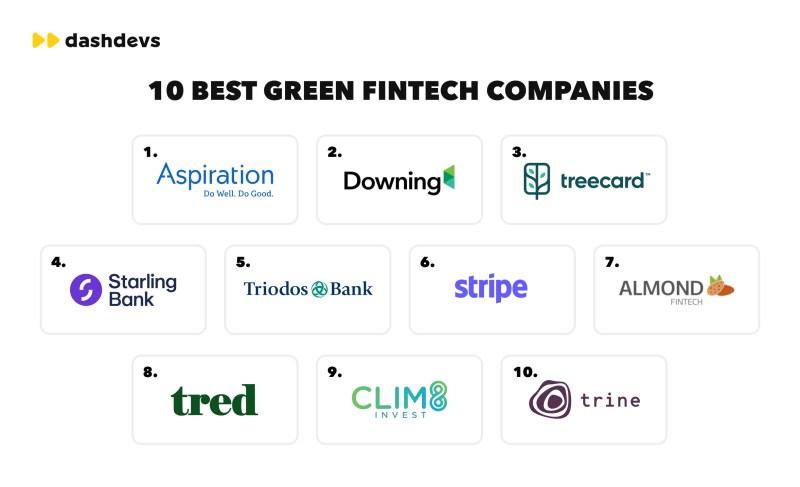
Who Regulates Fintech Companies In Usa – With more than 100 million cards generated, Issuance is the preferred provider of banking-as-a-service infrastructure for disruptive startups, new software platforms and innovators.
This guide is intended to provide a basic overview of fintech compliance in the US and should not be considered legal advice. Additionally, compliance and regulations are constantly evolving, so this guide does not provide a complete overview. Please consult with an attorney and compliance professional when evaluating and developing a compliance program for your fintech.
Who Regulates Fintech Companies In Usa

Startups that offer financial services — such as business expense cards, cash accounts, and access to credit — are governed by a long and complex set of regulatory requirements necessary to protect startup businesses, customers, and the U.S. financial system.
Best Fintech Startups In Asia
Compliance touches every aspect of a financial product, from marketing to onboarding to account closure. For example, you should make all financial product terms (such as fees, interest, payment requirements and other details) clear and prominent in your marketing materials. When onboarding users, you must conduct proper KYC and approval checks, and follow all fair lending laws when granting credit. And if users fail to make payments on a credit account, you may be required to comply with certain debt collection requirements that govern the frequency and time you can notify collection reminders. And that includes just a few of the compliance rules you must follow.
The diagram below is for illustrative purposes only and should not be considered a comprehensive list of fintech compliance requirements.
Compliance with various regulations is the key to building fintech: if you don’t get it right, and – in the worst case – you will face huge fines that can damage your business. In the worst case scenario, your business may close.
However, ensuring compliance is not just about avoiding fees or legal consequences. Investing in compliance means your startup can create safer, more robust products for users, while also making cash flow and product financing more secure, giving your business a long-term competitive advantage. Ultimately, you are acting in the user’s best interest, helping them gain access to a safe, stable and useful product.
List Of Top 10 Fintech App Development Companies
This guide provides an overview of how financial services are regulated in the US and what it means for your business. You’ll learn the basics of compliance, get an overview of the most common compliance regulations, and understand your options for managing compliance in your business.
A common way to offer financial products in the United States is to partner with a bank to use your product. Each partner bank is regulated by a primary regulator (along with many other regulatory bodies) which periodically reviews the bank’s compliance. For example, a bank may be audited for compliance with state and federal laws governing unfair and deceptive acts and practices (UDAP), which require (among other things) transparent, direct communication with customers.
Any fintech company working with a bank is not directly accountable to the same regulators as a result of its partnership with the bank. Your startup is unlikely to interact directly with a major banking regulator; Instead, the bank will manage your compliance with banking laws and regulations. For example, using the same scenario as above, the bank will verify that you remain UDAP compliant through integration testing and reporting requirements.

In addition, federal regulators that oversee banks (and fintech) but do not act as primary bank regulators include (but are not limited to):
5 Best Fintech Companies In Singapore (2024)
The specific laws and regulations you must follow depend greatly on your business. For example, there are some rules that only apply to consumer financial services or credit companies. However, in general, there are some rules that apply to all jobs:
This section is for illustrative purposes only and should not be considered an exhaustive list of fintech compliance requirements.
KYC or KYB is a mandatory process of verifying the identity of customers or businesses when they register for an account and then continuously monitoring transaction patterns to measure risk. Users must provide proof of their identity and address during your onboarding process to ensure they are who they claim to be.
What it means: Complying with KYC or KYB obligations helps ensure that money moving through your system is safe and not linked to money laundering, terrorist financing or other fraudulent schemes.
Overview On Setting Up A Fintech Company In India
Anti-money laundering regulations are a set of laws and regulations designed to prevent criminals from engaging in financial crimes and illegal activities—that is, disguising illicit funds as legitimate income. Anti-money laundering regulations require banks and other financial service providers to record and report the movement of money to control money laundering and terrorist financing.
What it means: Preventing money laundering and terrorist financing helps maintain a safe and secure financial system.
OFAC enforces a range of economic and trade sanctions against countries, legal entities such as businesses, and groups of individuals such as terrorists and drug traffickers.

What it means: It helps achieve foreign policy and national security goals by preventing the financing of terrorism, money laundering, or other fraudulent schemes.
What Is Financial Technology (fintech)? A Beginner’s Guide For 2023
The UDAAP and the UDAAP Laws prohibit companies from engaging in any unfair or deceptive (and in the case of the UDAAP Laws, abusive) practices or practices, such as not disclosing costs or misrepresenting a product or service. The UDAAP is required to protect all individuals and entities involved in commerce, while the UDAAP laws provide additional protection to consumers using financial products.
UDAP and UDAAP offer similar consumer protections, but are slightly different. The UDAAP includes an additional, intentionally vague prohibition on “abusive” practices that are used to accomplish multiple functions that could harm consumers.
What this means: Make sure you create a high-quality and secure user experience by making all your communications transparent and easy to understand.
Red flag regulations require businesses to adopt and implement a written identity fraud program to identify the warning signs – or red flags – of identity fraud. This program helps companies to quickly identify suspicious patterns and trends in their business, prevent identity theft and take appropriate steps to minimize its damage.
Us Fintech Entrepreneurs Regulation Guide
There are many rules that apply to businesses that extend, support or collect credit. For example, you may be subject to the Fair Credit Reporting Act, the Servicemembers Civil Relief Act, the Equal Credit Opportunity Act (ECOA), and others. This guide does not provide a complete list of all loan laws. Instead, we’ll cover the two most common: the Fair Lending Act and the Truth in Lending Act.
Fair lending laws like ECOA prohibit lenders from considering race, color, national origin, religion, sex, familial status or disability when applying for a loan. These laws and regulations apply to all extensions of credit, including loans to small businesses, corporations and partnerships. There are also technical communication requirements under the federal Fair Lending Act that require lenders to explain why an adverse action was taken against the borrower or loan applicant.
What this means is: preventing discrimination and ensuring that protected class people are provided with fair and equal access to credit; Provides transparency in the loan taking process.

TILA protects consumers from unfair debt collection and credit card practices. Lenders are required to provide advance information about loan costs so consumers can compare different types of loans. TILA applies primarily to consumer loans, but important fraud and dispute procedures apply to business loans as well. For example, in some circumstances, an employee’s cardholder may not be liable for more than $50 for unauthorized use of a stolen credit card.
Fintech Regulation: Legal And Regulatory Aspects
What it means: It protects borrowers from bad credit practices and improves the customer experience by ensuring that customers clearly understand the costs and terms of the loan; Protects certain borrowers from unauthorized use of stolen credit cards.
You or your internal compliance team can work directly with the bank to manage compliance, but this is often expensive and time-consuming. For example, this includes building a full-time compliance team from scratch, hiring lawyers, compliance specialists, financial managers, and more.
For your internal compliance management program to be approved, banks expect you to apply the same level of rigor that you apply to their own programs. To meet the bank’s expectations, you need to leverage your team of internal and external legal and compliance experts to continuously implement and manage a set of resource-intensive program components. These components include your core compliance policies, risk assessment processes and metrics, independent testing plans and workflows, content and compliance assessments, various compliance processes and controls, ongoing “compliance status” reporting, and compliance program management. They will evaluate you and your team on subject matter expertise, reporting capabilities, program policies, issues and risk management, internal training curriculum and more. We recommend that you speak with a compliance professional and attorney to fully understand what you need to do to become part of this program.
In addition to managing compliance yourself, you can hire an outside compliance consultant to design your policies, review materials, and test your user flow to ensure you’re in compliance with applicable laws.
What Is Fintech And What Does It Mean For Your Business?
However, external consultants are not only more expensive, they are also more compliant
Who regulates insurance companies in florida, who regulates life insurance companies, fintech companies in usa, who regulates property management companies, who regulates insurance companies in california, who regulates auto insurance companies, who regulates health insurance companies, who regulates home insurance companies, who regulates trust companies, who regulates car insurance companies, who regulates pharmaceutical companies, who regulates mortgage companies





